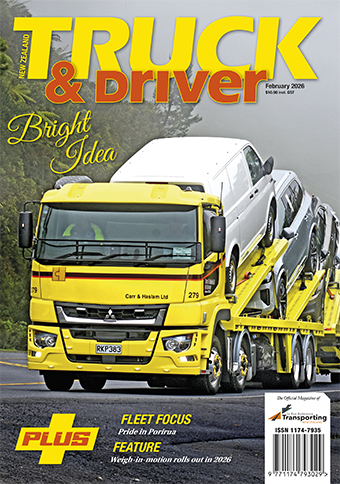
A smarter approach to regulation
Posted: 12-Sep-2025 |
WorkSafe forestry ACOP welcomed
WorkSafe recently published its approved code of practice (ACOP) for persons conducting a business or undertaking (PCBUs) involved in forestry and harvesting operations.
This is notable for a number of reasons, particularly in terms of leadership from a regulator that is majorly shifting its approach. We were involved in the development of that ACOP, having made a formal submission on it in April, and it’s timely that I raise some of those points again.
Firstly, in terms of a shifting approach, I vividly recall ex-WorkSafe CEO Phil Parkes joining one of our Board meetings and speaking about the prosecution related to the Whakaari White Island eruption. Several of our then-Board were aghast at what, rightly or wrongly, appeared to be a myopic focus of the regulator on investigating cases when something had gone badly, seeking fault and then prosecuting. There wasn’t much proactive work.
In its submission on the Ministerial health and safety review last year, the Business Leaders’ Health and Safety Forum raised several concerns. These included the absence of supporting regulations and guidance leaving businesses unclear about their responsibilities; and New Zealand’s regulatory practices being overly reactive and ineffectively focused.
So it was no surprise to hear the Minister for Workplace Relations and Safety, Brooke van Velden saying on many occasions that it was unacceptable for WorkSafe to find fault with businesses without clearly articulating its expectations.
To be fair, not all of WorkSafe’s activity was like that. A good example is its 2023 endorsement of the industry-developed Good Practice Guide: Safe Operation and Maintenance of Sideloaders. However, by and large there were significant disconnects between what the regulator expected to see versus how work was actually being done.
WorkSafe’s latest ACOP stands out for a number of reasons. Firstly, it demonstrates a changed approach.
The second is it takes an across-supply chain approach. I won’t list them all, but it includes those businesses that establish forests, prune trees, weed-spray forests, fell trees and of course, those that pick up the logs.
Thirdly, it leverages off good work that has already been done, and it does that with agility. For example, in the transport area it effectively incorporates the Industry Standards developed by the Log Transport Safety Council. In doing that, WorkSafe has collaborated and engaged with those that have the subject matter expertise and those that are closest to managing and being exposed to the respective risk in that activity.
Regulators working with the industry and transparently setting expectations for supply chain participants in an integrated way is a great approach. I’m confident it will lead to better health and safety outcomes, and it would be great to see more of this.
Rule reform
On Tuesday evening Transport Minister Chris Bishop hosted a virtual collective meeting of industry representatives. One of the major policy issues officials are grappling with is perverse outcomes from the introduction of the Clean Car Standards. Time will tell as to what response may develop, but it was pleasing to see willingness from the Minister and officials to have a free and frank discussion and consider ways to address the issues.
The Minister also clarified that it was not his intent that agricultural contactors get a free ride to do whatever they want on the road. Additionally, it was confirmed that the land transport rules reform package that we have been working on – in particular the VDAM Rule – remains on track, with public consultation beginning next month.
Tyrewise
Much work has been done in the decarbonisation space around truck powertrains, such as biofuels, hydrogen/diesel hybrid, renewable diesel, fuel cell and battery electric vehicles. However, another environmental issue that may not be appreciated as much as it should relates to the scrappage of tyres. Managing the waste from tyres is a global issue.
Over the last few years MBIE has been leading work in this area, and one of the big changes has been the fee for managing scrappage now being paid at purchase, rather than at disposal. Another big change has been the establishment of Tyrewise to manage tyres at the end of their life.
As part of our work in the environmental space, I chair the Tyrewise Transport Advisory Group. Here are a few stats you may find interesting:
- Over the last 12 months, 345,000 vehicles were road registered and a little under 6.5 million loose tyres were imported.
- Since collections began on 1 September last year, there have been 67,000 collection jobs undertaken, resulting in 4 million end-of-life tyres being picked up.
In another three years’ time, Tyrewise’s goal is to have 80% of our end-of-life tyres being used in products right here in Aotearoa New Zealand. This will reduce our reliance on export markets and create economic opportunities and jobs. It’s an ambitious goal, but one we’re proud to be taking a leadership role in trying to achieve.
Lastly, if you haven’t heard about this new podcast with Greg Murphy, it was a great listen during my drive up to Palmerston North for an industry networking event yesterday. Made in collaboration with our friends at Autosense, it platforms roads safety through real stories and some laughs along the way. Check it out here.
Dom Kalasih, Chief executive of Transporting New Zealand



 + EQUIPMENT GUIDE - FREE
+ EQUIPMENT GUIDE - FREE
